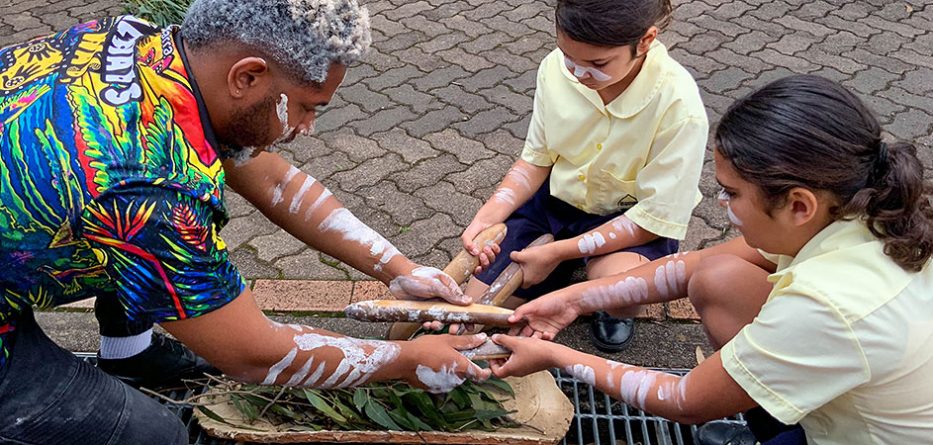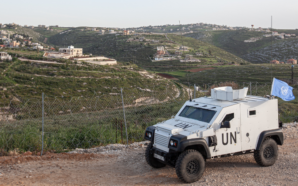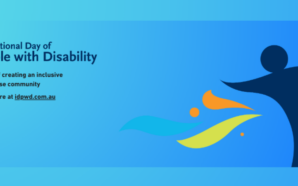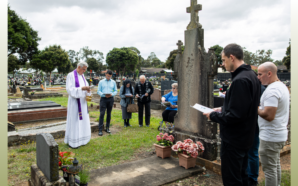Writer and academic Summer May Finlay uses the results of the 2021 State of Reconciliation in Australia report to push allies and accomplices to braver action.
Early this year, Reconciliation Australia released the 2021 State of Reconciliation In Australia Report: Moving from Safe to Brave. I’m sure for Aboriginal and Torres Strait Islander people who read it, there will be no surprises. There may even be a few sighs.
The reaction is not a reflection of Reconciliation Australia’s ability to produce a high-quality insightful report, but rather a feeling that all of it has been said before. Therefore, someone with a healthy dose of cynicism (which is most Aboriginal and Torres Strait Islander people) will be asking, ‘if little has changed before, will much change now?’
Because I am a glass-half-full kind of person, let’s start with the positive points.
The report is the second of its kind—the first was released in 2016. The most significant difference in the findings of the two reports is that currently, the Australian public is more likely to believe the relationship between Aboriginal and Torres Strait Islander people and other Australians is essential. Many also think it is vital to Close the Gap in health, justice, education and employment.
This positive change can be attributed to an increase in awareness of Aboriginal and Torres Strait Islander cultures and histories. Big thumbs up to all those who have taken the time to learn about Aboriginal and Torres Strait Islander people.
Yet, awareness isn’t enough. It’s not the end game. It’s actually only the very first baby step. What’s required from non-Indigenous people is action. Substantive action. Action that will likely make a lot of non-Indigenous people feel uncomfortable. That makes them squirm just talking about it with like-minded people. What’s required is action that tackles racism including institutional, systemic and interpersonal racism.
Action is what allies and accomplices need to do if they are really allies and accomplices. Not sure what allies and accomplices look like? No fear, I have explained it in a previous article you can go find: Where do you fit? Tokenistic, ally – or accomplice?
But what kind of actions are required? The report outlines several organisations, government and educational institutions that need active participants in the reconciliation process.
From my perspective, the three headline actions that individuals within the institutions need to undertake based on the report’s findings are:
- Truth-telling
As outlined in the Uluru Statement from the Heart, truth-telling is essential to Aboriginal and Torres Strait Islander people. This means all people, including teachers, policymakers, health professionals, service industries need to ensure that they are the individuals and the institutions telling Australia’s real history. This includes histories such as the Stolen Generation, massacres, racism, missions, theft of land and medical incarceration.
- Genuine partnerships with Aboriginal and Torres Strait Islander people
Too often, organisations, government and education institutions make decisions on behalf of Aboriginal people. For the last 230-plus years, most decisions that impact Aboriginal and Torres Strait Islander people have been made without us.
We can see the legacy of the lack of self-determination, including lower levels of education, poorer health, over incarnation and fewer job opportunities. It’s time to do what most of us know, at least those who are not racist. Understand that is the only way forward. Aboriginal and Torres Strait Islander people need to be in the decision-making seat.
As an individual, what this means is to engage the right Aboriginal and Torres Strait Islander people in the decision-making process. None of this reference group business where the recommendations are ignored. Nor can you recruit a junior Aboriginal person and expect them to speak on behalf of all Aboriginal and Torres Strait Islander people. Substantive effort and resources need to be invested by all organisations – small, medium, large, for-profit, not-for-profit, government and education institutions – into recruiting and engaging with local Aboriginal communities.
It also means swallowing your pride and actioning the suggestion made by Aboriginal and Torres Strait Islander people no matter how difficult or uncomfortable.
- Race relations
Actioning the former two areas will go a long way to progressing race relations, but what ultimately through what needs to happen though is moving towards little or no racism.
The first step is challenging racism by calling it out at the pub, in the workplace, among your students, in health care and anywhere and everywhere else it raises its ugly head. This may mean challenging a friend, family member, manager or colleague.
The second part is correcting the racism. Racism is usually based on a prejudicial belief, whether that is a stereotype, incorrect information or white supremacy. You need to make sure that the prejudicial opinion doesn’t stand uncorrected. Otherwise, ignorant people may assume that it is the truth. This permits an untruth to propagate.
If you see it and don’t challenge and correct it, you are condoning the behaviour and are part of the problem. Don’t be part of the problem. If you feel uncomfortable saying something, put yourself in our shoes. We feel uncomfortable hearing it, and we hear it a lot.
Word of warning though, if you’re non-Indigenous, be careful not to make the mistake that many well-intentioned non-Indigenous people make – that is to go storming off on a crusade to protect Aboriginal and Torres Strait Islander people without consulting us on what’s actually required.
National Reconciliation Week runs from 27 May to 3 June.
Dr Summer May Finlay is a Yorta Yorta writer, academic and social commentator. Follow Summer @SummerMayFinlay.
This article was originally published by NITV Digital. It was published in Issue 45 (May 2021) of Reconciliation Australia’s Reconciliation News.
Reproduced with permission from Reconciliation Australia.








